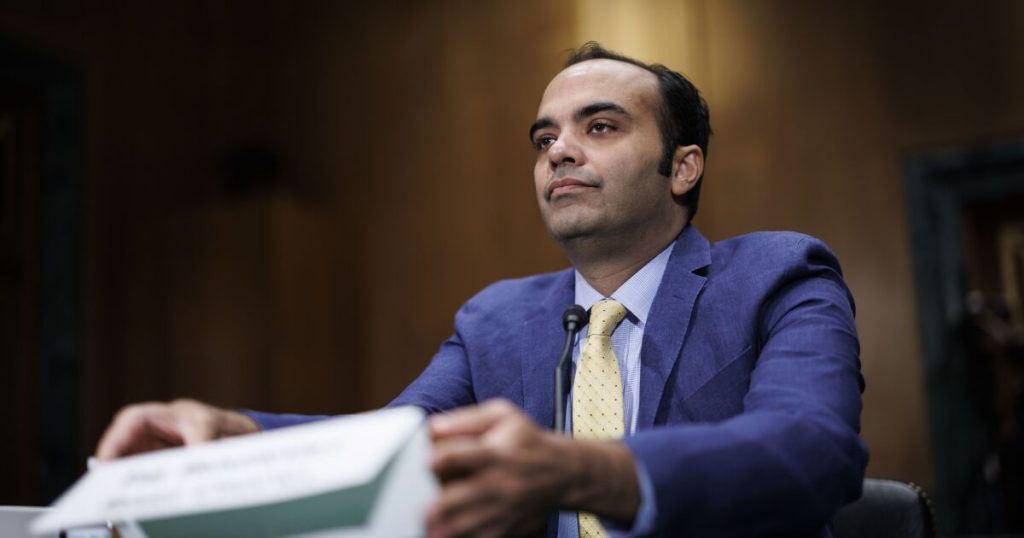Pay by bank has been touted as one of the alternative payment methods to compete with credit cards, and the Consumer Financial Protection Bureau’s finalized rule on open banking was supposed to help drive innovation in the space. Payment experts think it missed the mark.
The bureau’s open banking rule, which is also known as Section 1033, was released today, requiring banks, financial institutions and
“This is an absolute mess, and it’s also a really long delayed mess that doesn’t do what it needs to do,” Patching said, but noted that from a payments perspective it’s a “stepping stone in the right direction.”
To be sure, the new open banking regulation could help facilitate the creation of new pay-by-bank services that are not controlled by financial institutions because the data accessed would include the necessary information to create payment instructions over ACH or a faster payment network such as FedNow, said Aaron McPherson, principle of AFM Consulting.
But financial institutions aren’t required to accept payment instructions from third parties, McPherson said, and can use their usual authentication and authorization procedures to block new third party pay by bank services.
“We shall have to see how this works out in practice,” he said.
Tony DeSanctis, senior director at Cornerstone Advisor, said the rule was “written by regulators and lawyers who don’t understand the banking business,” and noted that CFPB’s mention of Pay by Bank was “perhaps the most confusing point of all” in the rule.
“This feels like it was written by the merchants. Very few consumers are unhappy with paying for things with cards,” DeSanctis said. “Only merchants who do not accept cards or are
The rule, which requires financial institutions to share data and prohibits them from charging a fee for the service, was celebrated as a win for merchants by the National Retail Federation.
“Retailers pay the card industry tens of billions of dollars to process credit and debit card transactions, driving up prices for American families on every purchase. Open banking could cut out these middlemen and create competition that would benefit small businesses and consumers alike. These new rules are an important step toward making that happen,” said NRF Chief Administrative Officer and General Counsel Stephanie Martz, in a statement.
That prohibition on fees is also problematic, said Eric Grover, principal of Intrepid Ventures.
“The CFPB is saying that banks have to build the infrastructure to share consumer data with permissioned third parties for free, which is effectively price controls,” Grover said. “I’m always wary of a regulator or the state directing the financial services sector on how to apply capital and what to charge for what they’re doing.”
Banks would also be prohibited from
“Banks are fundamentally in the data business, not just banking,” Crone said. “This ruling curtails their ability to innovate by limiting access to crucial consumer data, which is the cornerstone for developing new business models.”
That would have a direct effect on rewards programs, AFM Consulting’s McPherson said.
“A discount or offer as part of a rewards program would probably be viewed as a violation of the rule,” he said. “It also undermines the business model that enables consumers to receive financial services for free in exchange for receiving targeted ads. Combined with the prohibition on financial service providers charging fees for data access, this ultimately will cost consumers money.”
“One of the biggest issues holding back wide adoption of pay by bank is the use of
The rule does nothing to address these practices, Janiga said. “Cards don’t have these government-imposed hurdles. Fraudsters can’t easily change their credit card number, and card numbers don’t have to be re-issued every 12 months.”
Still, the rule does reduce the uncertainty around what open banking and data access will look like in the U.S., said Aaron Press, research director of worldwide payment strategies for IDC.
“The impact will be amplified by, and to some degree dependent on, other recent developments in payments, particularly the growth of instant payments,” Press said. “That said, tangible changes to payments will likely be slow, emerging over several years. Open data access certainly has the potential to change consumer payments, but the degree to which new payment methods are adopted are more a function of those applications and whether or not they offer consumers a distinct advantage over current payment options.”

